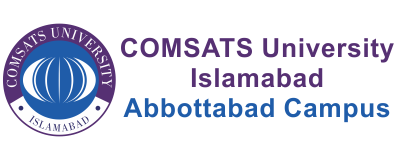Overview
MS in Electrical Engineering (MSEE) includes the following specializations or major areas:
- Power and Energy Engineering
- Electronic Systems Engineering
- Telecommunications Engineering
(i) Power and Energy Engineering:
The energy systems and power electronics program actively pursues research in the areas of system reliability and performance modeling and prediction, system protection and automation, system control and stability, large-scale system computational methodologies and power electronics. The research is aim at the integration of power electronics with the study of power systems, analysis of power quality and system stability, techniques of power-distribution automation, optimal plan of power system and power electronics, fundamentals Of Energy, Energy Resources & Technology, Quality of Energy, Complete Cycle Analysis of Fossil Fuels, Energy in Transportation, Other Fossil Fuels, Energy Economics : Input-Output Analysis, Solar Thermal Energy Conversion, Solar Concentrating Collectors, Photovoltaic Power Generation, Wind Energy, Wind Electrical Conversion , Tidal Energy, Ocean Thermal Energy Conversion, Solar Pond and Wave Power, Geothermal Energy, Solar Distillation and Biomass Energy, Energy Storage, Magneto hydrodynamic Power Generation, Hydrogen Economy.
This program also examines economic theory, empirical perspectives, and political economy of energy supply and demand. It discusses aspects of local, national, and global markets for oil, natural gas, coal, electricity, nuclear power, and renewable energy; and examines public policies affecting energy markets including taxation, price regulation and deregulation, energy efficiency, and control of emissions.
(ii) Electronic Systems Engineering:
The research provides intensive preparation for the professional practice in the high technology microelectronics and VLSI aspects of Electrical Engineering. The students will be able to acquire knowledge about the current technology of microelectronics, nano-electronics and optoelectronics. This includes broad treatment in the theory and practice of semiconductor devices, circuit modeling and design of integrated circuits.
(iii) Telecommunications Engineering:
Research in telecommunications is concerned with efficient representation, storage, transmission, processing, routing and reception of information from a wide variety of sources. The range in research will be from the highly-mathematical, to applied algorithm design, experimental prototyping, and contributions to emerging industry standards. In signal processing, the research will span a wide range of areas of signal processing including signal processing for communications , speech processing for recognition and synthesis, multimedia signal processing and compression, medical imaging, optical information processing, array/distributed/collaborative signal processing, immersive audio, speech processing for recognition and synthesis, and other multimedia related technologies such as content-based representation and retrieval.
Program Description
Electrical Engineering is a dynamic and broad field. It encompasses the basic physics of semiconductors, through electronic and optical devices, the design of computers, to algorithms and structures for biological and information technologies. The information and technology revolution has been built – in large part – on the advances of different fields of Electrical Engineering like Electronics, Communications, Computers, Systems & Control and Power Engineering. Research challenges are emerging from manipulations at the nano and molecular scales, from the convergence of electronics and biology, and from linking the virtual world to the physical world.
The MS Program in Electrical Engineering emphasizes the practical application of electrical sciences and technology to the needs of society. The program is designed to help prepare students for industry, teaching and research careers, and to meet the need for rigorous and advanced training in the applied aspects of modern technology.
The primary goal is to provide the highest quality education for students pursuing MS degree in the Electrical Engineering to attain the following goals:
- To create new knowledge and challenge young minds by participation in the process of discovery and invention.
- To educate the graduate students with a solid background of fundamentals, stretching their imagination, and preparing them for an exciting future.
To serve the society through research, education and outreach activities
Application and admission
At CUI the admissions into graduate programs are offered on merit. The merit is determined on the basis of the academic record, GRE/NTS-GAT score and interview.
General Eligibility Criteria
Pre-requisite:
A 16 years degree in the relevant field from an accredited educational institution, with minimum First Division (Annual System) or CGPA 2.5/4.0 (Semester system) and no third division (Annual System) or ‘D’ grade (Semester system throughout the academic career.
Registration with Pakistan Engineering Council (PEC) is preferred.
NTS GAT (General) with minimum score of 50.
Program Duration:
The duration of studies for MS degree shall normally be, not less than two years and not more than four years.
Course Work:
An MS Scholar will have to complete minimum of 30 credit hours by undertaking 24 credit hours course work from approved Scheme of Studies and 6 credit hours of MS Thesis.
MS Program Requirements and Structure:
The MS program requirement is 30 credit hours with Thesis option only.
Thesis Option: Requirement is minimum 24 credit hours of course work and 06 credit hours of thesis involving research work.
MS Project: The students can also fulfill MS degree requirements by completing 24 credit hours of course work and an MS project of 06 credit hours. The project can be completed in an industry, enterprise or public/private organization and involves design/development/analysis work relevant to the degree program.
A student may complete 30 credit hours of course work and also complete 06 credit hours of MS Thesis or Project. In such cases, additional course work will be considered non-credit. A student, who registers for thesis or project, may still chose to complete degree requirements through course work option only by taking additional courses with the approval of the departmental graduate committee. The student will be eligible for the award of the degree whenever he/she completes the program requirements through any of the options as specified above.
Distribution of courses and credit hours for MS Program
|
|
Required Courses |
Courses |
Sub Total Credits |
|
COMMON COURSES |
Core Courses (To be selected from the specified core courses) |
1-4 |
3-12 |
|
ELECTIVES |
Area Elective Courses (To be selected from the Major Area or Specialization) |
3-6 |
9-18 |
|
Open/Cross-Area Elective Course (From specified Open Electives or Cross Area i.e. from all the approved courses other than those included in the Core and Area Electives of a specialization chosen by a student) |
1-4 |
3-12 |
|
|
|
Thesis / Project |
|
6 |
|
Total Credits |
30 |
||
Sample Study Plan: (Based on a typical scenario of 2 core courses, 3 -4 area electives and 2-3 courses from open/cross area courses with Thesis or Non-Thesis Option)
(Note: This is tentative plan which may change based on available resources and departmental needs; this is not a scheme of study in the strict sense)
|
Semester 1 |
||
|
S. No. |
Subject/ Course |
Credit Hours |
|
1 |
Core Course -1 |
3 |
|
2 |
Core Course -2 |
3 |
|
3 |
Area Elective Course -1 |
3 |
|
4 |
Area Elective Course -2 |
3 |
|
Semester 2 |
||
|
5 |
Area Elective Course -3 |
3 |
|
6 |
Area Elective Course -4/Open Elective Course-1 |
3 |
|
7 |
Open/Cross Area Elective Course –2 |
3 |
|
8 |
Open/Cross Area Elective Course –3 |
3 |
|
Semester 3 |
||
|
9 |
MS Thesis |
6 |
|
Total Credit Hours |
30 |
|
Qualifying Requirements:
Minimum 2.5 CGPA in course work and satisfactory defense of Project/Thesis
EEE800 MS Thesis: (6 Credit Hours)
The student will register for the research thesis or project (to be carried out in industry, enterprise or public/private organization involving design/development/analysis work) of 6 credit hours with a supervisor from within the department or someone suitable outside the department approved by the Departmental Graduate Committee.
The MS thesis or project, after submission, shall be defended by the student before a panel of examiners consisting of the Head of the concerned department, research supervisor and at least one external examiner, who should be on the list of external examiners.
The examiners shall assess the student’s performance, identifying both the strengths and weaknesses. The written thesis shall be graded as approved, deferred or not acceptable.
If the submitted thesis is graded not acceptable (i.e., requires major revision), the student shall be considered to have failed. In the case of failure, the examining committee shall recommend if resubmission after major revision is allowed, or research on a different topic is to be undertaken, or the candidate has terminally failed.
If the examining committee recommends minor changes to the written thesis, the supervisor shall be responsible for ensuring that these revisions are incorporated and for informing the Dean of the concerned Faculty and Dean GSRP in writing.
The examining committee shall record its decision for every student examined, which shall be signed by all members of the committee.
Note: Information regarding required oral and written examinations and detailed rules and regulation as specified in the latest CIIT Graduate Handbook will be considered final.
Career prospects
On successful completion of the course the graduates will have an excellent opportunity in finding employment in areas with a broad, critical and practice-based understanding of Electrical Engineering & specialized disciplines. This knowledge makes them ready for a variety of leadership positions in complex contemporary environments and teaching careers in universities.

